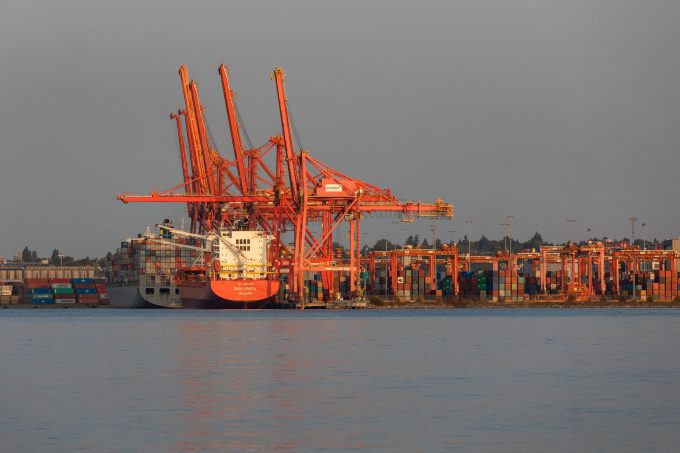
While contract negotiations between US west coast labour and marine terminals move at a snail’s pace, talks north of the border, in Canada, quickly came off the rails.
After a few sessions, barely two weeks after the start of talks, the International Warehouse & Longshoremen’s Union (ILWU) stepped back from discussions with the British Columbia Maritime Employers Association (BCMEA) for a new contract at Canadian west coast ports, and asked the federal government in Ottawa for conciliation.
And the face-off is also casting a shadow over Vancouver Fraser Port Authority’s (VFPA) plan to build a new container terminal.
Negotiations for a new contract on the west coast – including the ports of Vancouver and Prince Rupert – got under way on 6 March to replace the five-year deal expiring at the end of the month.
Nobody was expecting a quick settlement, previous contract talks had dragged on for a year or more, but the speed the negotiations hit an impasse was a surprise. After five rounds of talks, the ILWU asked the government to appoint a conciliator to get the negotiations back on track.
“ILWU Canada is taking this action because there has been no meaningful progress with the BCMEA,” the union declared.
A conciliation officer has to be appointed within 15 days, and the process is set for 60 days, but can be extended upon request from both sides. They have gone through this on previous occasions without reaching a compromise.
In the run-up to the negotiations, the ILWU signalled it would be seeking “significant” wage increases for its members, and benefits and working conditions were also expected to produce some tough negotiations.
Probably the biggest stumbling block, however, is the thorny issue of automation of container terminals – just like south of the border, where the ILWU has taken a firm stand.
The issue had been a flashpoint in the previous round of Canadian contract negotiations in 2019, which culminated in a brief lock-out. The two sides worked out a compromise soon afterwards with the help of an arbitrator and, in the aftermath, the union commissioned a study on terminal automation.
This concluded that an automated terminal could operate with 50% to 90% fewer workers than a manually operated one.
The issue has risen again as VFPA is planning a new container terminal close to the port’s Deltaport facility and the union is fighting to prevent automation.. It argued that this would not only affect employment at the new site, but have a knock-on effect at the port’s existing container facilities, which would be forced to follow suit to remain competitive.
In February, the ILWU sent an open letter to the government in Ottawa expressing concern over the impact of the planned facility on jobs and on the environment.
VFPA has been lobbying hard to gain environmental approval for the new terminal and asked the union to join its effort, but the ILWU rejected this – even after the port authority dangled a carrot in the shape of 800 or more guaranteed jobs if the facility got built. This was dismissed by the union, which said the VFPA had previously argued that decisions on automation would be up to terminal operators.
Ottawa’s conciliation officer is facing a near-impossible task, as both sides appear set to battle for their objectives.